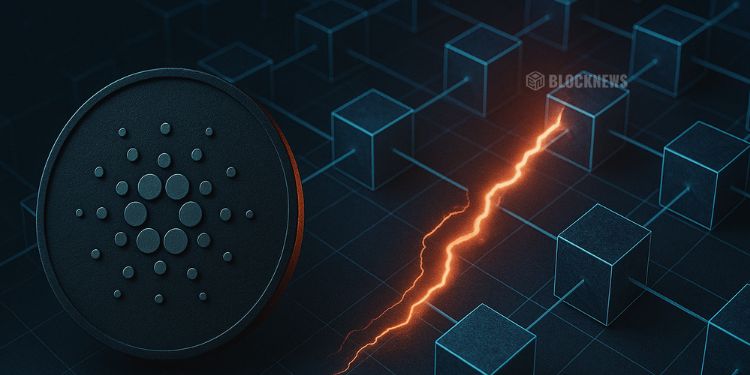- Cardano’s blockchain briefly split after a malformed transaction passed validation on newer nodes but not older ones.
- Charles Hoskinson said the event was tied to an intentional attack from a disgruntled stake pool operator.
- Developers quickly resolved the issue with a hard fork and identified the attacker’s wallet the same day.
Cardano’s blockchain ran into an unexpected hiccup early Friday when a malformed delegation transaction slipped through the cracks and triggered a brief chain split. It didn’t last long, but it was enough to stir up the community and raise a few eyebrows. The network technically stayed online through the whole thing, though the blocks drifting down two different paths definitely wasn’t part of the plan, you know? Developers jumped in fast, patched things up, and kept block production moving without any downtime, which is impressive… even if the moment was a bit messy.
A Hard Fork Brings the Chain Back Together
The whole mess started because newer Cardano node versions accepted the weird, malformed transaction, while older versions took one look at it and said nope. That mismatch caused the network to split into two chains, and one branch started gaining more weight simply because more stake lived there. According to Intersect, Cardano’s governance organization, the issue wasn’t some mysterious ghost in the machine but a bug hiding inside one of the underlying software libraries. The validation code just didn’t catch the error, letting the malformed transaction sneak onto the chain and confuse nodes running outdated software.
Developers responded quickly by applying a hard fork that stitched the diverging paths back together. Even with the odd moment of uncertainty, Cardano stayed online the whole time, and normal block production resumed once the dust settled. It wasn’t pretty, maybe, but it worked.
Attack Linked to Disgruntled Stake Pool Operator
Things took a sharper turn when Cardano co-founder Charles Hoskinson said the split wasn’t just an accident. He called it a “premeditated attack” launched by a frustrated stake pool operator who apparently wanted to hurt Cardano’s reputation and maybe dent the standing of Input/Output Global, too. According to Hoskinson, the attacker’s wallet was identified in less than a day, and an FBI investigation is already underway.
He also mentioned that the person behind the attack had been hanging around the “Fake Fred” Discord server, trying to poke at vulnerabilities. Fortunately, the network reacted quickly and locked down the situation before anything worse happened. Even so, the glitch caused some real consequences: stake pool operators lost block rewards thanks to a set of double-spend events that slipped through during the split.
Community Reaction and the Experiment Gone Wrong
Later on, a user on X named Homer J. stepped forward and admitted to submitting the transaction that set everything off. They said they were just experimenting with the network, didn’t expect anything serious to happen, and honestly didn’t realize the kind of chaos they were about to trigger. They even apologized to the Cardano community, noting that the whole thing started because they were following some AI-generated instructions without understanding the full risks.
Despite all of that, Cardano’s developers reassured everyone that the network’s response was fast and effective. Hoskinson urged stake pool operators to upgrade to the latest software version to avoid any repeat incidents. The whole episode served as a strange mix of human error, intentional exploitation, and community resilience—all unfolding in real time.














